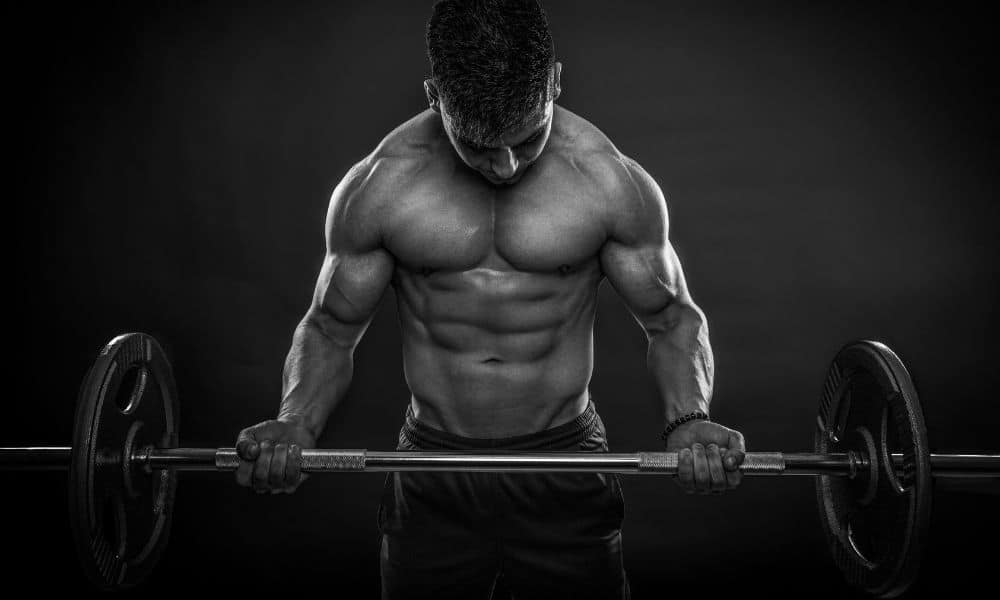Are you looking to take your fitness to the next level? The key to peak performance lies not only in your training routine but also in your nutrition. Fueling your body with the right nutrients can make all the difference in achieving your fitness goals. This article will share the top nutrition tips to help you optimize your performance and reach new heights.
From pre-workout snacks to post-workout recovery meals, we will cover everything you need to know about fueling your fitness journey. Discover the benefits of nutrient-rich foods, learn about the importance of hydration, and explore the role of protein, carbohydrates, and fats in maximizing your workouts.
Whether you are an athlete, a fitness enthusiast, or someone looking to improve your overall health and well-being, implementing these nutrition tips can take your performance to the next level. Get ready to elevate your fitness game and unlock your full potential!
The Importance of Nutrition for Peak Performance
Proper nutrition plays a crucial role in achieving peak performance. Your body needs a balanced intake of macronutrients and micronutrients to support energy production, muscle repair, and overall recovery. Without adequate nutrition or supplements, your body may lack the fuel to perform optimally, decreasing endurance, strength, and overall performance.
To ensure that you are fueling your body adequately, it’s important to focus on consuming nutrient-dense foods. These foods provide essential vitamins, minerals, and antioxidants that support your body’s functions and help you perform at your best. By prioritizing nutrition, you can enhance your workouts, improve your recovery, and achieve your fitness goals more effectively.
Understanding Macronutrients and Their Role in Fueling Fitness
Macronutrients, namely protein, carbohydrates, and fats, are the primary sources of energy for your body during physical activity. Each macronutrient uniquely fuels your workouts and supports your fitness goals, either weight gain or weight loss.
Protein is essential for muscle repair and growth. It helps repair damaged muscle tissue, aids in synthesizing new muscle fibers, and supports overall recovery. High-quality protein sources, such as lean meats, poultry, fish, and eggs, and plant-based options like legumes and tofu, can help optimize your muscle-building potential.
Carbohydrates are the body’s preferred source of energy. They provide the fuel needed for both high-intensity workouts and endurance activities. Complex carbohydrates, such as whole grains, fruits, and vegetables, are rich in fiber and provide sustained energy, while simple carbohydrates, like those found in sugary snacks or drinks, can provide quick bursts of energy. Balancing your carbohydrate intake based on your activity level and timing can help boost your performance.
Fats are another important energy source, especially during longer, low-intensity activities. Healthy fats, such as those found in avocados, nuts, seeds, and fatty fish, provide essential fatty acids and help maintain hormone balance. Including a moderate amount of healthy fats in your diet can support overall performance and recovery.
Top Nutrition Tips for Before a Workout
What you eat before a workout can significantly impact your performance. The right pre-workout nutrition can provide the energy and nutrients needed for your training session. Here are some top nutrition tips to consider before your workouts:
- Timing is key: Aim to eat a balanced meal or snack containing carbohydrates and protein 1-3 hours before your workout. This allows enough digestion and nutrient absorption time, providing sustained energy throughout your session.
- Carbohydrate focus: Prioritize consuming complex carbohydrates before your workouts. Opt for whole grains, fruits, and vegetables, as they provide a steady release of energy and help prevent blood sugar crashes during exercise.
- Protein power: A moderate amount of protein before your workout can help support muscle repair and prevent muscle breakdown. Choose lean protein sources like chicken breast, Greek yogurt, or tofu to fuel your muscles effectively.
- Hydration is key: Don’t forget to hydrate! Proper hydration before exercise ensures optimal muscle function and helps prevent fatigue. Aim to drink water or a sports drink at least 1-2 hours before your workout.
- Avoid heavy and high-fat meals: Foods high in fat or heavy can slow down digestion and make you feel sluggish during your workout. Stick to lighter, easily digestible meals or snacks to avoid discomfort.
Following these pre-workout nutrition tips ensures that your body is properly fueled and ready to tackle your training session with maximum energy and focus.
Fueling Your Body During a Workout
During intense or prolonged workouts, providing your body with additional fuel to sustain energy levels and prevent muscle fatigue is essential. Here are some strategies for fueling your body during a workout:
- Stay hydrated: Hydration is crucial during exercise, as it helps regulate body temperature, prevent dehydration, and maintain optimal performance. Sip water or a sports drink throughout your workout to replenish fluids lost through sweat.
- Carbohydrate-rich snacks: For longer workouts or endurance activities, consuming easily digestible carbohydrates can provide extra energy. Consider carrying energy gels, sports drinks, or small snacks like bananas or energy bars to fuel your performance.
- Electrolyte replenishment: Electrolytes, such as sodium and potassium, are essential for maintaining fluid balance and muscle function. If you’re engaged in high-intensity or prolonged exercise, consider consuming electrolyte-rich sports drinks or incorporating electrolyte tablets into your hydration routine.
You can maintain energy levels, delay fatigue, and optimize your performance by providing your body with the right nutrients and fluids during a workout.
Recovery Nutrition: What to Eat After a Workout
Post-workout nutrition is crucial for muscle recovery, replenishing glycogen stores, and optimizing overall recovery. Consuming the right nutrients after exercise can help repair muscle damage, reduce muscle soreness, and facilitate muscle growth. Here are some key components of an effective post-workout meal or snack:
- Protein for muscle repair: Consuming protein after a workout is vital for muscle repair and growth. Include a high-quality protein source, such as whey protein, lean meats, or plant-based options like soy or pea protein, in your post-workout meal or snack.
- Carbohydrates for glycogen replenishment: Replenishing glycogen stores is crucial after intense workouts. Include carbohydrates in your post-workout meal to restore energy levels. Opt for whole grains, fruits, or starchy vegetables for a balanced carbohydrate intake.
- Fast-digesting nutrients: To kickstart the recovery process, consider consuming fast-digesting nutrients within 30-60 minutes after exercise. This can be a protein shake, a fruit smoothie with added protein, or a balanced meal containing protein and carbohydrates.
- Fluids for rehydration: Hydration doesn’t stop after your workout. Replenish fluids lost through sweat by drinking water or a sports drink to restore optimal hydration levels.
Providing your body with the necessary nutrients after a workout can enhance recovery, optimize muscle growth, and prepare your body for future training sessions.
Hydration and Its Impact on Performance
Staying properly hydrated is essential for optimal performance, as even mild dehydration can negatively affect your physical and mental abilities. Dehydration can lead to decreased endurance, reduced strength, impaired concentration, and increased fatigue. To stay adequately hydrated, follow these hydration tips:
- Monitor your fluid intake: Pay attention to your fluid intake throughout the day, not just during workouts. Aim for a minimum of 8 cups (64 ounces) of water daily or more if you engage in intense physical activity.
- Pre-workout hydration: Drink water or a sports drink at least 1-2 hours before your workout to ensure optimal hydration levels before exercising.
- During workout hydration: Sip on water or a sports drink during your workout to replenish fluids lost through sweat. If engaging in prolonged or intense exercise, consider consuming electrolyte-rich beverages to maintain electrolyte balance.
- Post-workout hydration: Rehydrate after your workout by drinking water or a sports drink to replenish fluids lost during exercise. Monitor your urine color to ensure adequate hydration; pale yellow urine is a good indication of proper hydration.
Prioritizing hydration throughout the day, especially during workouts, can help optimize your performance, prevent dehydration, and enhance overall recovery.
The Role of Supplements in Supporting Fitness Goals
Supplements can support your fitness journey, but they should not replace a balanced diet. Here are some commonly used supplements and their potential benefits:
- Protein powders: Protein powders, such as whey, casein, or plant-based options, can help increase protein intake, support muscle repair, and aid in muscle growth. They are convenient for post-workout recovery or when it’s challenging to meet protein needs through food alone.
- Creatine: Creatine is a popular supplement that can enhance high-intensity exercise performance, increase muscle strength and power, and promote muscle growth. It is commonly used by athletes and individuals engaged in strength training.
- Branched-chain amino acids (BCAAs): BCAAs are a group of essential amino acids (leucine, isoleucine, and valine) that play a crucial role in muscle protein synthesis and recovery. Consuming BCAAs during or after a workout can help reduce muscle soreness and support muscle repair.
- Omega-3 fatty acids: Omega-3 fatty acids, found in fish oil supplements or algae-based options for vegetarians and vegans, have anti-inflammatory properties and can support joint health, cardiovascular health, and overall recovery.
It’s important to note that while supplements can be beneficial, they should complement a well-rounded diet and should be taken under the guidance of a healthcare professional or registered dietitian.
Meal Planning and Prepping for Success
Meal planning and prepping can set you up for success by ensuring that you have nutritious meals readily available, saving time, and helping you make healthier choices. Here are some tips to make meal planning and prepping a breeze:
- Plan your meals: Take some time each week to plan your meals and snacks. Consider your fitness goals, schedule, and dietary preferences when creating your meal plan.
- Batch cooking: Prepare larger quantities of meals and store them in individual portions. This makes it easier to grab a nutritious meal on busy days or when you’re short on time.
- Pre-cut fruits and vegetables: Wash, peel, and chop fruits and vegetables in advance to have them ready for quick and easy snacks or to incorporate into meals.
- Stock your pantry: Keep your pantry stocked with nutritious staples like whole grains, legumes, canned fish, nuts, and seeds. This ensures you always have ingredients on hand to create balanced meals.
- Use containers and labels: Invest in meal prep containers to store your meals and snacks. Label containers with the contents and date to keep track of freshness and minimize waste.
By incorporating meal planning and prepping into your routine, you can make healthier food choices, save time, and stay on track with your nutrition goals.
Nutrition Myths and Misconceptions in the Fitness Industry
The fitness industry has various nutrition myths and misconceptions that can confuse even the most well-intentioned individuals. Let’s debunk some common myths and set the record straight:
- Myth: Carbohydrates are bad for you: Carbohydrates are an essential macronutrient and a primary source of energy for your body. The key is to choose complex carbohydrates from whole grains, fruits, and vegetables, rather than relying on sugary or processed foods.
- Myth: High protein diets are necessary for everyone: While protein is important, excessively high protein diets are not necessary for most individuals. The recommended daily intake for protein is around 0.8 grams per kilogram of body weight for the average person. Athletes or individuals engaged in intense physical activity may require slightly higher amounts.
- Myth: Fat should be avoided: Healthy fats are essential for hormone balance, brain health, and overall well-being. Focus on consuming sources of healthy fats like avocados, nuts, seeds, and fatty fish in moderation.
- Myth: Supplements can replace a balanced diet: While supplements can be beneficial, they should not replace a well-rounded diet. A balanced diet should always be the foundation of your nutrition.
It’s important to be critical of nutrition information and seek advice from reputable sources, such as registered dietitians, to separate fact from fiction.
Conclusion: Prioritizing Nutrition for Optimal Fitness Results
In conclusion, nutrition is vital in achieving peak performance and fitness goals. You can optimize your performance and unlock your full potential by understanding the importance of macronutrients, implementing pre- and post-workout nutrition strategies, staying hydrated, and incorporating meal planning into your routine.
Everyone’s nutritional needs are unique, so it’s essential to listen to your body, experiment with different approaches, and seek guidance from qualified professionals. By prioritizing nutrition alongside your training routine, you can fuel your fitness journey and take your performance to new heights. Start implementing these top nutrition tips today and watch your fitness goals become a reality.
Fuel your fitness, fuel your success!




